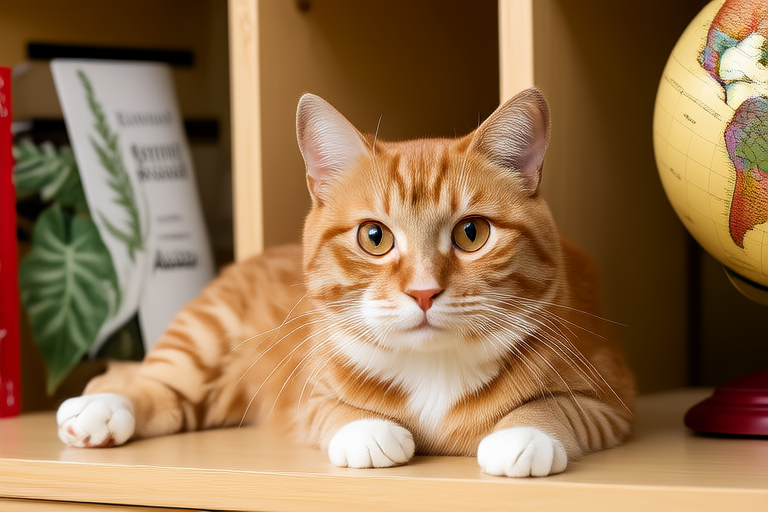The Unique World of Munchkin Cats
Munchkin cats have captured the hearts of many cat lovers with their distinctively short legs and playful personalities. Beyond their famous physical trait, Munchkins possess a rich history, unique behaviors, and specific care requirements that make them stand out from other cat breeds.
A Brief History
The Munchkin breed has a fascinating origin story. Discovered in Louisiana in 1983 by Sandra Hochenedel, this breed is believed to be the result of a spontaneous genetic mutation. Sandra found two cats under a pickup truck, one of which was a short-legged female she named Blackberry. Blackberry gave birth to kittens with the same characteristic, leading to the establishment of the Munchkin breed.
Initially met with skepticism from the cat fancy community due to ethical concerns over the potential health issues associated with the breed’s unique trait, Munchkins were eventually recognized by The International Cat Association (TICA) in 2003. Today, they are gaining acceptance as a legitimate breed.
Distinctive Characteristics
While their short legs are the most noticeable feature, Munchkins come in various coat types, colors, and patterns, including shorthair, longhair, and semi-longhair varieties. Their coats can be silky, plush, or fluffy, depending on the type.
Munchkins are generally small to medium-sized cats with a sturdy build. Despite their shorter legs, they are surprisingly agile, capable of jumping high and running fast. They have a broad chest, large round eyes, and large ears set wide apart, giving them an alert and intelligent expression.
Behavior and Temperament
Munchkin cats are known for their friendly and outgoing nature. They are highly social animals, often seeking human interaction and attention. This makes them excellent companions for families with children or individuals looking for a pet that enjoys being around people.
These cats are also very curious and playful, often engaging in activities like chasing toys or exploring new environments. They are not typically lap cats but enjoy being close to their owners. Munchkins get along well with other pets, including dogs, and can adapt to various living situations, making them versatile companions.
Common Health Concerns
Despite their popularity, Munchkins face some health challenges due to their genetic makeup. One of the most significant concerns is spinal problems caused by the shortened vertebrae in their legs. These issues can lead to conditions such as lordosis (swayback) or kyphosis (roaching), which may cause pain or discomfort.
Another potential issue is pectus excavatum, where the breastbone is sunken inwards, affecting heart and lung function. Regular veterinary check-ups and a healthy lifestyle can help manage these conditions.
Popular Myths About Munchkin Cats
One of the most common myths about Munchkin cats is that they cannot run or jump properly. While it’s true that their gait is different from other cats, Munchkins are quite agile and can move swiftly. Another misconception is that all Munchkins have health issues. While some do face challenges, many live long, healthy lives with proper care.
Influence of Physical Traits on Interactions
Their short legs don’t hinder Munchkin cats’ ability to interact with other pets or humans. In fact, their unique appearance often draws attention and affection from people. They are adept at climbing and jumping, using their strong hind legs and flexible bodies to reach high places.
When interacting with other pets, Munchkins tend to adapt to the dynamics of the household. They can coexist peacefully with dogs if introduced properly and gradually. Their playful nature means they often enjoy the company of other cats, especially when there is ample space for exploration.
Grooming Needs
Munchkin cats require regular grooming to maintain their coat’s health and appearance. Shorthaired Munchkins need weekly brushing to remove loose hair and prevent matting. Longhaired Munchkins benefit from daily brushing to keep their coats tangle-free and shiny.
Additionally, regular nail trimming, ear cleaning, and dental hygiene are essential for overall health. Bathing should be done as needed, using a gentle shampoo suitable for cats.
Exercise Needs
Munchkin cats are naturally active and enjoy playing. Providing them with interactive toys, scratching posts, and climbing structures can satisfy their need for mental and physical stimulation. They also appreciate the opportunity to explore outdoors in a safe environment, such as a securely fenced yard or a harness-and-leash setup.
Engaging in play sessions several times a day helps keep Munchkins fit and prevents boredom. Puzzle feeders can also be used to stimulate their minds while providing meals.
Suitable Living Environments
Munchkin cats thrive in environments that offer plenty of vertical spaces for climbing and hiding. Multi-level homes with cat trees, shelves, and window perches are ideal. They also enjoy having access to natural sunlight and fresh air.
For indoor-only Munchkins, ensuring a stimulating and enriching living space is crucial. This includes providing various toys, scratching surfaces, and opportunities for social interaction. Outdoor enclosures or catio setups can provide a safe way for Munchkins to experience the outdoors.
Anecdotes and Stories
One story that showcases the charm and personality of Munchkin cats involves a family who adopted a Munchkin kitten named Whiskers. Whiskers quickly became the center of attention, captivating everyone with her playful antics and endearing personality. She would follow her owner everywhere, always ready for a game of fetch or a cuddle session.
Another anecdote tells of a Munchkin cat named Oliver, who lived with a family of four. Oliver was particularly fond of the youngest child, often curling up beside him during nap time. His presence brought comfort and joy to the household, proving that Munchkin cats can be loving and devoted companions.
Conclusion
Munchkin cats are more than just their famously short legs; they are charming, sociable, and full of life. Understanding their unique physical traits, behaviors, and care requirements allows potential owners to provide the best possible home for these delightful creatures. Whether you’re a first-time cat owner or an experienced enthusiast, Munchkin cats offer a rewarding and enriching companionship.
